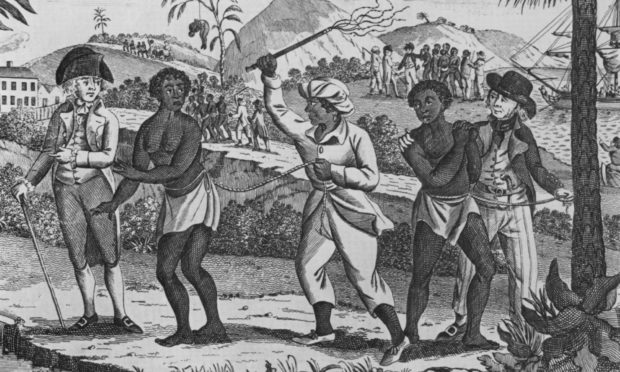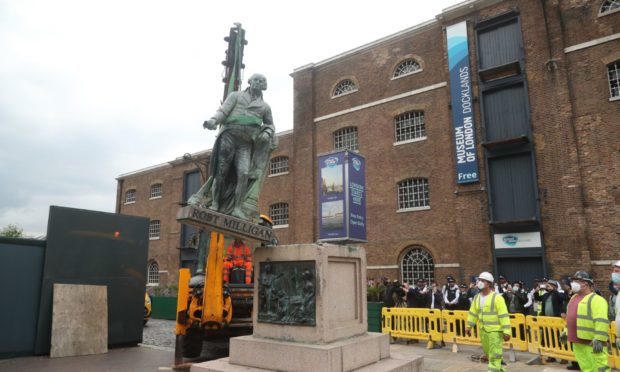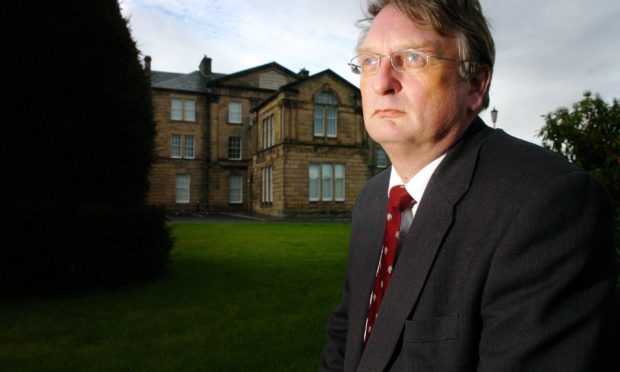Slave trade profits have been used to give grants to teachers and schools in the north-east for almost two centuries, we can exclusively reveal.
The shocking truth behind the origins of the Dick Bequest – which is still issuing financial support in the north-east to this day – has been uncovered by two historians.
They now want the next Scottish Government to take a stand and order the remaining £1.7 million in the fund to be sent back to Jamaica.
The proposal has been backed by Verene Shepherd, a renowned Jamaican historian and director of the Centre for Reparation Research at the University of the West Indies.
The bequest was established following the death in 1828 of Forres-born merchant James Dick, who left almost £120,000 for educational development in Aberdeenshire, Banff and Moray.
The annual interest was the equivalent of at least the salaries of all eligible schoolmasters in the 137 rural parishes in the area, and about 30,000 children were benefiting each year from the money by the 1850s.
It continues to distribute grants to help teachers in Aberdeenshire and Moray develop their skills through travel or study, and also supports the purchase of school equipment.
However, extensive research by David Alston and Donald Morrison has now revealed that Mr Dick made his fortune as a slave trader in Jamaica.
The new link between the north-east and the slave trade was described by Mr Alston as a “particularly clear example of how we can follow the money through to our own day”.
Mr Dick had a business partnership with Robert Milligan, whose statue was removed last year by the Museum of London from its plinth in London’s Docklands, amid a wave of anger across the country about the UK’s enduring links to slavery.
Mr Alston, a former Highland Council budget leader and NHS Highland chairman, is a historian who has been studying Scottish involvement in the slave trade for two decades.
He said: “Scots were disproportionately active in running the slave-worked plantations of the Caribbean and the profits from this human trafficking spread benefits throughout society in Scotland.
“This is a particularly clear example of how we can follow the money through to our own day.
“Now, as a society, we have the opportunity to act justly and ensure that future benefits go to children in Jamaica. The power to do so lies with the MSPs we will elect this week.”
This changes everything. The Dick Bequest is now tainted.”
Donald Morrison
Mr Morrison, is a retired history teacher who has worked in schools in Moray and Aberdeenshire, and in 2007 was a representative on the north-east committee set up to commemorate the 200th anniversary of the abolition of the Atlantic slave trade.
He said: “On his return to London from Jamaica with his fortune made, James Dick seems to have been keen to airbrush his involvement in the slave trade by describing his business there as mere book-keeper and merchant.
“However, in the last few weeks, David Alston and I have uncovered evidence showing that he was indeed a slave trader.
“This changes everything. The Dick Bequest is now tainted.
“Teachers, students and parents will no doubt want to see any current disbursements from the fund frozen until such time that the new Scottish Government has time to do the right and just thing.”
The Dick Bequest Trust is run by 10 governors, of which five are elected by the Society of Writers to the Signet, two by the senate of Aberdeen University, and three by Aberdeenshire and Moray councils.
Aberdeenshire councillor Isobel Davidson, who is one of the trustees, said that while it was a charity, it was not a standard charitable trust where the trustees have the freedom of action, subject to oversight from the regulator.
“The Dick Bequest Trust is a statutory scheme established by statutory instrument with purposes and procedures directed by central government,” she said.
“The governors are therefore bound to follow the directions given to them under the paragraphs of the scheme and have no discretion to do otherwise.”
The trust accounts show the value of the bequest was £1.69m at the end of 2019.
A total of 28 applications for grants were made by local teachers in 2019, with £33,743 distributed that year, up from 26 applications and £24,243 in grants in 2018.
While children in Scotland are benefiting from the Dick Trust, children in Jamaica whose ancestors created that wealth are not. It is time to right the wrongs of the past through reparatory justice.”
Verene Shepherd
In addition, £13,551 was allocated for school equipment in 2019, down from £20,567 in 2018.
Ms Shepherd was a co-chairwoman of Jamaica’s National Council on Reparations, and has also held several positions within the Office of the United Nations High Commissioner for Human Rights.
She said: “I applaud and support the call on the Scottish Government by historians David Alston and Donald Morrison, who are asking for the return to Jamaica of money made by James Dick, who made his fortune in Jamaica as a merchant and trader in Africans.
“Scotland, like other parts of the United Kingdom, benefited economically, socially and politically from the misery of people captured from Africa, transported in British ships manned by British captains and crew and enslaved in the Caribbean.
“It is time that the riches gained from the trafficking in Africans and the unwaged labour of those subjected to chattel enslavement be returned to the descendants of ancestors whose labour made individuals in Britain wealthy.”
She added: “While children in Scotland are benefiting from the Dick Trust, children in Jamaica whose ancestors created that wealth are not.
“It is time to right the wrongs of the past through reparatory justice.”



